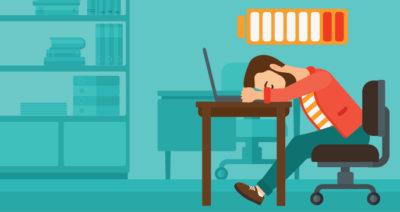
The problem of professional burnout is not unique to medicine. I have seen it in others and I have experienced it myself.
What makes us stumble in our profession? In the years I managed staff before turning to my own solo practice, the threat of their burnout was most acute when there was the least autonomy, the narrowest scope of work defined for a position, and/or the most pressure from heavy work schedules. For me as an employee, it was similar: frustration from not having a voice in how work could be best accomplished, boredom from seemingly endless repetition within a narrowly defined set of tasks, and unrelenting pressure from deadlines piled on top of deadlines by higher ups who didn’t prioritize between themselves before each individually telling me their own project was “Priority Number One.”
Helping others thwart burnout at work can be difficult, as declining productivity and enthusiasm have many causes. I found staff meetings helped to air some of the problems and eventually come up with some fixes. Some people were bored with the same kinds of work. Some felt unappreciated when finishing ahead of schedule and under budget. Others had no idea why they had to collect some of the data they were being asked for and resented what they thought was “busy work.”
Some complaints are easier to resolve than others, depending upon support from those higher up the managerial ladder. Certainly personal acknowledgement of achievements should be a natural process. But assigning more responsibility with associated accountability means additional training for some, an investment of time and company resources in building stronger staff, whether through in-house training or by sending staff to night school. In another experiment, some field people swapped a week with office staff to see the other side of the picture. The cross-training ended up educating both the “insiders” and the “outsiders”—beyond finding out that it wasn’t all cushy on the other side of the office door, no matter which side they had started on.
Back to the article that triggered this train of thought: The author reflects on various writings on the subject of resilience in the face of adversity and concludes that coming out alive and intact is related to a sense of purpose and meaning. “We acquire resilience when we find purpose in our work. We seek mastery—expertise, skills, commitment and recognition—in our domains. And we need autonomy—independence—in what we do.”
But more contributes to burnout than just what happens during the work day, as I have learned painfully. As my mother’s dementia deepened, her hoarding tendencies worsened, making it easier for her to lose things in the mess, thereby feeding into paranoia that someone was breaking in and stealing from her. This meant accelerating my efforts to declutter her apartment while continuing to wait for an opening in the memory care section of her retirement center.
For over a year, my part time job became weekly Saturday travels to her apartment to sneak out a full car load of 20-year old utility receipts from her former house amidst assorted loose papers, duplicate items she forgot she already had, hundreds of jars stacked inside of each other (in case she might need a specific size), formal dresses not worn in decades, and so much more. Every Sunday I sifted it all into “discard”, “donate”, “recycle”, and “keep” piles, with multiple trips to Goodwill and Salvation Army to keep my garage from overflowing.
Losing a sense of control over my own life while trying to sort through hers pushed me toward burnout as the emotional and physical demands meant scant creative thinking time when handling my own usual workload and no personal downtime. I know that my experience is not unique. But it underscores the need for a holistic view of what causes burnout.
For physicians in the referenced article, burnout was attributed to “the overwhelming strains of bureaucracy and paperwork, the vast quantity of time spent at work and a lack of respect from administrators and employers” and a lack of adequate compensation. That translates well to our profession as well.
The article is posted on the New York Times website: nytimes.com/2018/10/10/magazine/for-doctors-delving-deeper-as-a-way-to-avoid-burnout.html